Jury shown footage of murder accused begging dead wife to come home
Richard Satchwell, 58, from Grattan Street in Youghal, Co Cork, denies murdering his wife Tina Satchwell at the home they shared in March 2017.

The jury in a murder trial have been shown footage of the accused begging his dead wife to make contact with him, claiming he was “extremely concerned” about her.
Richard Satchwell, 58, from Grattan Street in Youghal, Co Cork, denies murdering his wife Tina Satchwell at the home they shared in March 2017.
Her remains were found buried under a concrete floor under the stairs in their family home, six years after she disappeared.
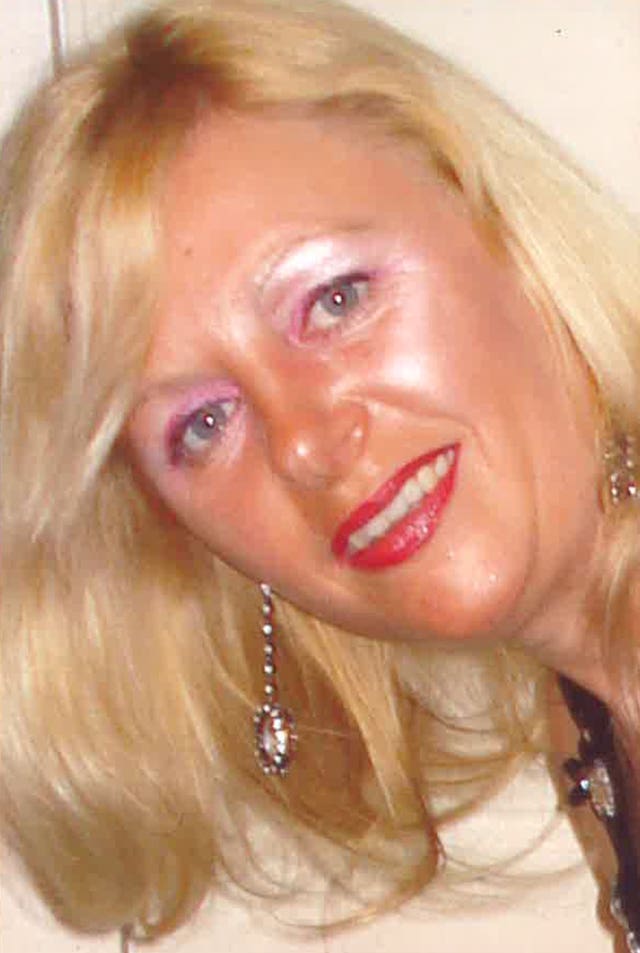
Satchwell, who is originally from Leicester in England, formally reported his wife missing on May 11 2017, weeks after he told police she had left their family home, suspecting it was because their relationship had “deteriorated”.
Some three months after his wife disappeared, Mr Satchwell took part in a number of televised and recorded interviews with various broadcasters, in which he expressed his concern for her whereabouts.
The interviews, which took place in late June and July 2017, were shown to the jury at the Central Criminal Court in Dublin.
In an interview with RTE on June 26, Mr Satchwell described his wife as a “loving and gorgeous woman” who loved fashion.
He appealed for Ms Satchwell to contact him or the police, adding that he wanted to know if she was okay.
He told the reporter that he was struggling to eat, had lost weight and could not sleep at night, saying he was becoming increasingly worried about her.
As the interviews were played to the court, Mr Satchwell sat looking at the floor of the court room.
Mr Satchwell said in the interview that he was “extremely concerned” for his wife, and that he had been suffering over the previous three months.
He added that their pet dogs and parrot were lonely and missing her.
In another interview with Independent.ie, Mr Satchwell said that he “nothing to hide” about his wife’s disappearance, and that he had been telling the truth.
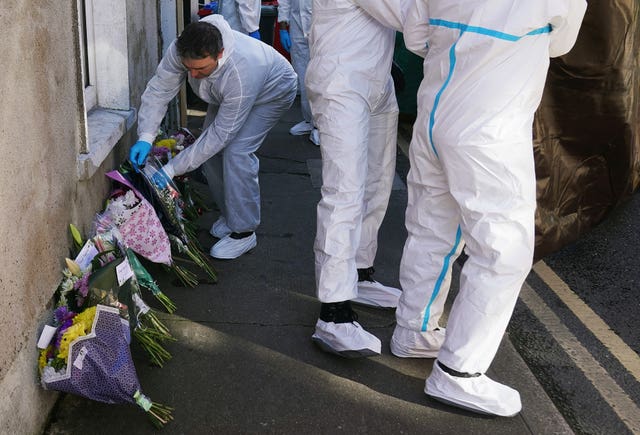
In an interview with Cork 96FM, recorded on July 9, 2017, Mr Satchwell said he did not appreciate some of the questions put to him by police, in which he was asked if he would harm his wife.
He said he never lifted a finger to her in their 28 years of marriage.
During the radio interview, he said he knew after within hours of meeting her, he knew he wanted to marry her.
He said he was not her type as he was overweight at the time and he “would not be the good looking guy she would usually look for but she fell in love with my personality”.
Inspector Daniel Holland told the court that he spoke to Mr Satchwell at Midleton Garda Station the day after his house was searched in June 2017.
Mr Holland said it was a very general conversation, describing it as an “exchange of information” that lasted around an hour or an hour-and-a-half.
He said that Mr Satchwell discussed his relationship with his wife, and told police that he had given up a lot of be with Ms Satchwell, that his family did not approve and no longer spoke to him.
He said he wanted to have kids, but she did not, claiming she was very headstrong and determined.
Mr Holland said that Mr Satchwell “alluded to physical assaults” on previous occasions and said that on two occasions she had knocked him out cold and was left unconscious.
He told police that before Christmas 2016, her mood had deteriorated, and that shortly before she went missing, she had assaulted him.
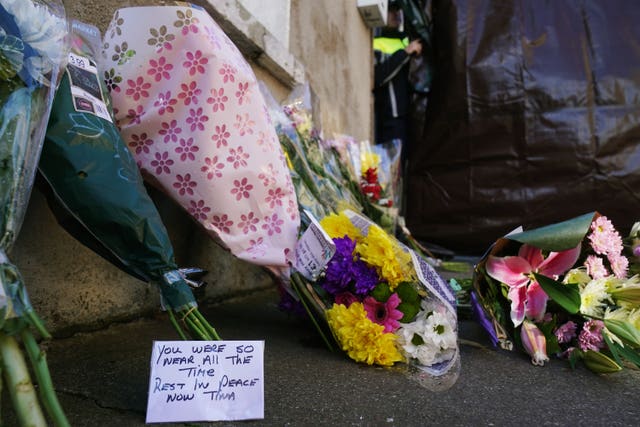
During the exchange, he told police that he never once reacted to her alleged outbursts and assaults.
He said he would deal with them by driving away on his own, and would have a cry.
He claimed he would never physically react and did not report the assaults to police.
Mr Satchwell told officers that he had conversations with Ms Satchwell about her mental health and that he has asked her to seek help in relation to it but she did not want to.
He said he felt that Ms Satchwell would not hurt herself as she was not that type of person.
He said he fully expected her to return home, but added that the publicity surrounding her disappearance may be an obstacle, as she thought people may ridicule her for leaving.
Following the search, police found documents showing transfers of money to various people around the world.
Mr Holland said that thousands of euros were sent to Western Union accounts and police wanted to know if it had something to do with her disappearance.
Mr Satchwell claimed Ms Satchwell wanted to adopt marmoset monkeys and had great difficulty in doing so and that was the reason behind the international transfers.
He said that emails on his laptop would provide an explanation about the money, however Mr Holland said the explanation for the money was “confusing”.
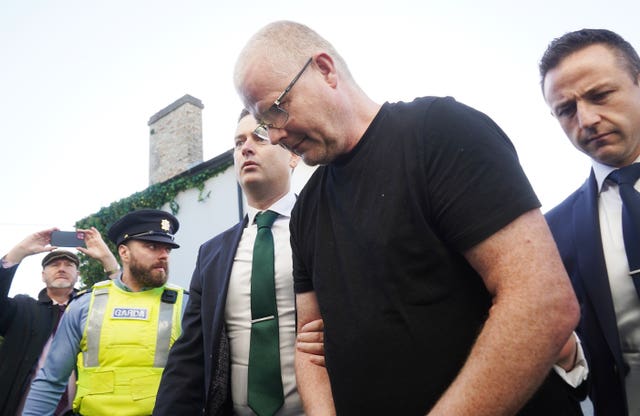
Asked to explain how the couple were able to save 26,000 euros in cash, Mr Satchwell claimed a large portion of the money came from going to car boot sales, and they would earn between 150 to 200 euros a week from selling clothes, and bric-a-brac.
He said this money was saved over four years and sold items he got from cleaning out his house in Fermoy and clearing out his wife’s garage.
They had kept the cash in a tin box in the attic, which he sold shortly after she disappeared, the court heard.
When asked what the money was being saved for, he said it was for a new central heating system.
Mr Holland told defence barrister Brendan Grehan that Mr Satchwell said he was “obsessed” with his wife, adding that he specifically noted the word as it was so “strong”.
Mr Satchwell told police his wife’s mood had deteriorated before Christmas in 2016, and that her “extreme anger” led to serious assaults on him.
When asked why he had put up with the alleged assaults, Mr Satchwell said that when she was not angry, she was a perfect person and he had long accepted this dark other side to her.
He claimed he never retaliated, and that she carried a lot of baggage from her childhood.
Asked to go through his movements on the night before and morning of his wife’s disappearance, police said he was “scant” on detail, but was able to provide a good description about his travels to the post office in Youghal, to Grange Church and on to Dungarvan before he returned home.
Earlier, the court heard that police investigating her disappearance “strongly suspected” that something “untoward” and “criminal” had happened to her.
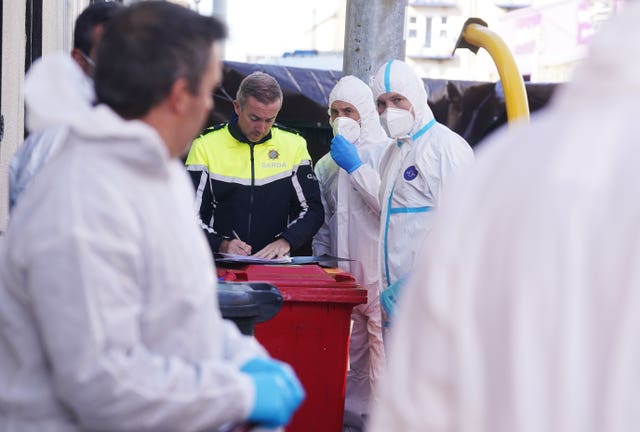
Retired sergeant John Sharkey, who worked at Youghal Garda Station in 2017, said it was treated as missing persons case for a period of time and over a two-week period in May, officers carried out a number of inquiries.
He said that on May 15, police launched a national public campaign through media platforms which included a picture of Ms Satchwell.
The court was told that this did not generate any assistance to investigators.
He said that police carried out inquiries to locate her, including trawling CCTV footage of the area in Youghal, launching a social media campaign with pictures of Ms Satchwell, using local radio and TV stations and carrying out house-to-house inquiries but they were “fruitless”.
He told the court that due to a lack of progress to locate any trace of Ms Satchwell, he became suspicious that something “untoward had occurred”.
Mr Sharkey said he was not alone in his suspicions and that there were others in An Garda Siochana (Irish police) who were also suspicious.
Asked by Mr Grehan if by June 2 2017, he believed Ms Satchwell may have been injured or incapacitated by a criminal event, he replied: “Correct.”
He said that in the days leading up to the search, he held a meeting with his superiors to review the case and a decision was made to apply for a search warrant.
Mr Sharkey said that full police resources were deployed to search the family home in Youghall, which began at around 7.30am and was fully completed by 7pm.
Mr Sharkey said it was a “thorough search” completed by a team of specialists and he believed there were up to 10 trained officers involved.
Garda Cathal Wheelan, who is a crime scene investigator attached to north Cork crime investigation unit at Cobh Garda Station, was also involved in the search.
His role was to take pictures of the premises before the search team went into the property and take photos of anything of significance found.
Describing the house, he said it was a three-storey, semi-detached old property.
He said the house was untidy and unkept and that there was dog faeces on the floor, as well as a dirty bird cage with a parrot inside and dirty dishes.
He also noted that the stairs appeared to be made of relatively new, untreated and unpainted wood.
The wall at the stairs had unpainted plasterboard which again appeared to be “relatively new”.
He said he believed building works had been going on in the house, which appeared to be started but not finished, adding that there appeared to be some repair work.
Mr Wheelan said that upstairs he saw a large amount of racks with a lot of clothes, the master bedroom was untidy and the walls were not painted nor had wallpaper on them.
In the attic, he saw shoes and handbags.
The trial continues.





